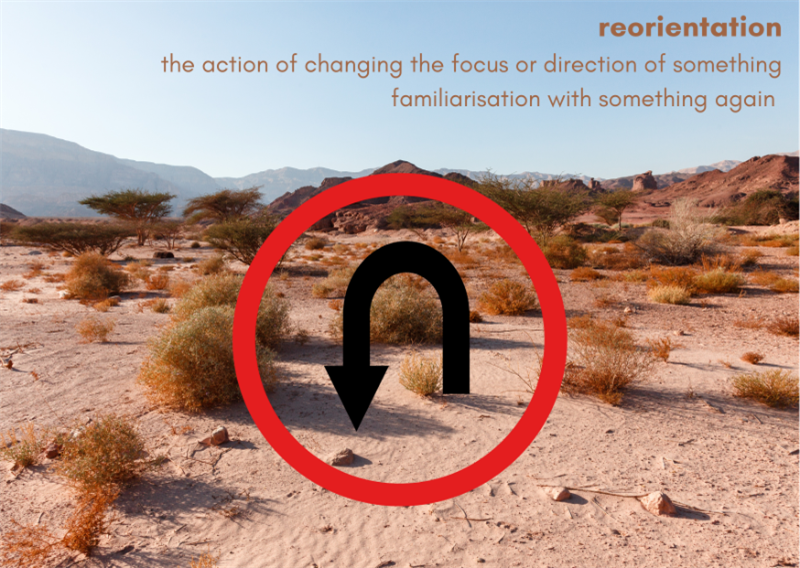30th March 2025

Into the Wilderness: a Place of Reorientation
Moses is in big trouble. Born a Hebrew, saved from death as an infant through the courage of his mother and sister, and brought up by Pharaoh's daughter in the royal court of Egypt, he grows up in an uncomfortable, one might say "wilderness" place between two cultures - Hebrew and Egyptian. One day, seeing an Egyptian bullying a Hebrew slave, his anger overwhelms him, and he murders the Egyptian. Moses must run away and, like Cain before him, he flees into the wilderness.
Life in the wilderness, for a prince of Egypt, must have been unbearably strange and disorientating. Moses goes from living in the luxury of the royal palace to being dependent on the hospitality of Jethro, the priest of Midian and his daughters. He must learn to survive in yet another strange culture, grow to understand and appreciate that culture's unwritten rules and expectations. He must, very probably for the first time in his life, submit to a working life of physical labour in a wide, endless expanse of desert, without the comforts or distractions of Egypt. And he stays there for forty years.
And then, one day, as he is pasturing the flocks, he notices something extraordinary. A bush appears to be on fire - and yet, it is not burning up. Moses, we are told in Exodus 3, turns aside to look... and, from that moment, his life will change irrevocably.
For God is present in the empty space of the wilderness. The bush that is on fire yet not consumed by the flames is burning with nothing less than the presence of YHWH, the God of Moses' ancestors who reveals himself to Moses as "I am who I am" - the one who is present, always, in the present moment. God has neither abandoned nor given up on Moses. God has a job, a calling for Moses that nobody else can do, and that Moses' forty years in the wilderness, far from a missed opportunity, has been an ideal, a vital preparation.
As somebody who can quite easily fail to see what is right under my nose, I wonder whether that bush had been burning for a long time before Moses noticed it? I wonder whether God had actually been tangibly present in Moses' wilderness for days, weeks, months or even years before Moses recognised what was going on? I wonder what was different on the day when Moses turned aside to look?
The story of Moses reminds me that, even when I don't notice him, God is present in my wildernesses, in my sorrows and struggles and even my sinfulness. I wonder what it will take for me to turn aside and look?
